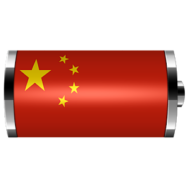The development of electric vehicles in China is being held up by the short life and inconsistency of lithium-ion batteries, says the executive chairman of the China Power Industry Association (中国电源工业协会).
In an interview with Ofweek, a Chinese technical news portal, Fang Yingming said the recent deterioration of air quality in Chinese cities had motivated the government to lend its support to the emerging EV industry, and as the relationship between EVs and battery technology developed, lithium had rapidly become the first choice for EV manufacturers.
“But battery factories are committed to supplying more than a thousand lithium batteries with cycle life limited to single cells, and lack of uniformity in the cells will affect the whole battery,” said Fang.
“Even if the batteries coming out of the factory are consistent, environmental conditions may vary– outside temperature conditions, cars being parked in different places, for example– and over time, the electrochemical properties of the battery pack mean that there may be single cell failures and this will affect the safety and cycle life of the whole battery.”
Isn’t this where battery management systems (BMS) come in?
“There are major difficulties with battery management systems in China,” said Fang.
“One is the wide range of mainstream battery factories battling each other, and the difficulties that BMSs have in forming technical standards for different cells.
“Secondly, lithium batteries are still in an early stage of development– production technology and production equipment are imperfect, and it’s difficult to ensure the consistency in factories.
“And third, the technical support between the BMS and the batteries is still immature: there is a lot of repetition and no relevant technical standards.”
At the moment the industry in China does not seem to be slowing down.
Production of all EVs in China in December reached 100,000 units compared with just under 75,000 in November, and 50,000 in October. Year on year, the increase was 100%.
According to the US-based Renewable Energy World, China’s State Council has set a target of producing more than five million pure electric and plug-in hybrids by 2020.












